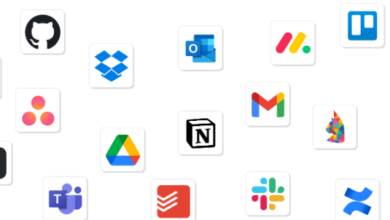How Collaborative Hiring Reshapes Company Success

Key Takeaways
- Involving diverse team members in hiring leads to better candidate evaluation and cultural fit.
- Collaborative hiring reduces unconscious bias and promotes diversity.
- Implementing structured processes and leveraging technology are essential for effective collaborative hiring.
Introduction
Modern talent acquisition is undergoing a transformation as more organizations realize the value of collaborative hiring. This approach engages a group of team members—rather than a single recruiter or manager—in the hiring process, pooling insights from different stakeholders and enabling a more robust assessment of candidates. Online recruitment systems play a critical role by allowing seamless collaboration and information sharing among hiring teams, enhancing decision-making capabilities, and leading to more successful hires.
Companies implementing collaborative hiring are discovering considerable advantages, from stronger team cohesion to a more inclusive work environment. Collective involvement allows for a comprehensive evaluation of applicants and sets the stage for long-term employee engagement and business success through thoughtful recruitment aligned with company culture. Embracing online recruitment systems empowers organizations to create structured, interactive hiring processes that efficiently process feedback and streamline candidate management.
Understanding Collaborative Hiring
Collaborative hiring is a team-based approach to recruitment. It requires input from various stakeholders, including human resources professionals, hiring managers, and future teammates. Everyone brings a unique perspective, ensuring that technical skills and cultural compatibility are evaluated. This group-oriented process differs from traditional recruitment models that rely solely on the opinion of a single manager or recruiter, broadening the criteria used to select suitable candidates and minimizing the risk of overlooking potential red flags—or strengths—that might otherwise go unnoticed.
Collaborative hiring builds buy-in from staff by incorporating team feedback, ensuring that new hires integrate quickly and contribute meaningfully from day one. The process also enhances transparency by clarifying candidates’ role expectations and workplace culture before accepting an offer.
Benefits of Collaborative Hiring
Improved Candidate Fit
Evaluating candidates from multiple viewpoints significantly increases the likelihood of finding employees who align with an organization’s mission and team dynamics. This approach dives deeper into assessing both hard skills and soft skills, while also emphasizing cultural alignment. Ultimately, improved candidate fit reduces turnover costs and allows teams to function harmoniously—attributes that are increasingly vital in today’s competitive workforce landscape.
Reduced Hiring Bias
Collaborative hiring naturally reduces bias by diluting the influence of one person’s preferences or assumptions. The more diverse the team conducting interviews and evaluations, the more likely the process will uncover and counteract unconscious biases. According to research from the Harvard Business Review, such structured and inclusive methods are instrumental in supporting diversity, equity, and inclusion efforts across organizations.
Enhanced Employee Engagement and Retention
When employees engage in the hiring process, they develop a sense of responsibility for their new colleague’s success and a greater sense of belonging within their team and company. Involving staff members not only boosts morale but also fosters accountability, as team members become invested in helping new hires acclimate and flourish. Ultimately, this collective responsibility translates into higher job satisfaction and improved retention rates.
Implementing Collaborative Hiring
Define Roles and Responsibilities
Successful collaborative hiring starts with clarity. Each participant should have a well-defined role, whether screening applications, conducting interviews, or performing reference checks. Clear responsibilities prevent confusion and ensure effective coordination throughout the process.
Develop a Structured Interview Process
Companies should use standardized interview questions and consistent rating scales to maximize objectivity and minimize bias. Structured interviews also allow for easier comparison between candidates, making it more likely that decisions are data-driven rather than instinctual.
Leverage Technology
Modern technology is essential to orchestrating collaborative hiring efficiently. Applicant tracking systems and digital feedback tools can gather input from all team members, manage interview schedules, and centralize candidate data. With remote work and distributed teams on the rise, technology bridges the gap, ensuring everyone’s voices are heard and considered in the final hiring decision.
Foster Open Communication
Encouraging candid, respectful communication is crucial. Teams need a forum for sharing feedback, discussing impressions, and raising concerns. Creating a safe environment for open discussion guarantees every perspective is considered and improves the quality of the final decision. For tips on building open communication channels in recruitment, Forbes provides actionable advice in its article.
Conclusion
Collaborative hiring is a transformative strategy that allows organizations to make better, more inclusive hiring decisions. Companies benefit from reduced turnover, increased employee engagement, and the development of highly functional, diverse teams by involving multiple team members. When combined with the right processes and modern online recruitment systems, collaborative hiring becomes a competitive advantage and a cornerstone of lasting organizational success.





